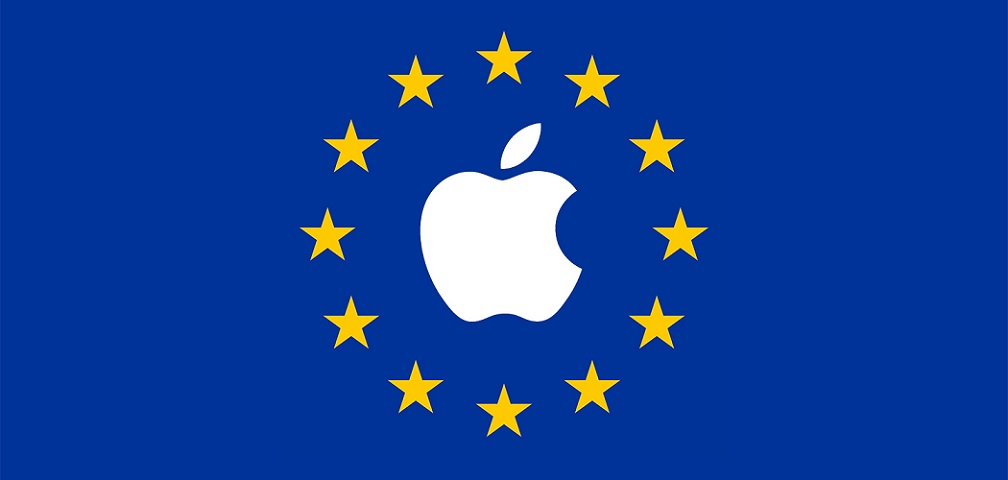
EU could force Apple to open up iPhone NFC functionality.
The European Union is considering new rules that would likely require Apple Inc. to give competitors access to payments technology inside its iPhones, according to Bloomberg.
The new laws would prevent mobile device manufacturers from limiting access to near-field communication technology embedded in smartphones and other devices such as smartwatches, according to documents obtained by Bloomberg.
NFC technology handles wireless signals that allow users to pay via their devices at store terminals, rather than a credit or debit card. While the report did not mention Apple by name, at present iPhone and Apple Watch users can only make NFC payments using Apple Pay. Banks and other competitors have complained they want the same functionality for their own iPhone apps and that Apple won’t give them access to the chip.
The report is set to be unveiled next week by the European Commission as part of a package of policy proposals. It includes a footnote to a competition case launched by the European Commission’s antitrust arm in June, which is seeking to assess whether the iPhone giant unfairly blocks other providers from using the tap-and-go functionality on its smartphones.
“In parallel with its ongoing and future competition enforcement, the Commission will examine whether it is appropriate to propose legislation aimed at securing a right of access under fair, reasonable and non-discriminatory conditions, to technical infrastructures considered necessary to support the provision of payment services,” the EU says in the document.
Since launching NFC in the iPhone in 2014, Apple has limited the chip to its own Apple Pay service. The company has previously said it restricts access as part of a system that encrypts users’ card information. Letting competing mobile payments apps access the NFC chip decoupled from Apple’s added layer of security could increase the risk of fraud and other security breaches, it has argued.
The EU in the document said any legislation would take “due account of the potential security and other risks that such access could pose,” adding it would spell out criteria determining to whom and under what conditions access rights should be granted.
Any EU legislation would follow German rules earlier this year that require operators of digital money infrastructure to open up access to competitors for a reasonable fee.
The European Commission is examining how to tighten regulation of technology companies that offer financial services.
New fintech companies have contributed to breaking up the value chains for a given financial service, making it difficult for supervisors to monitor risks, the commission says in another document. The commission is seeking advice from European supervisory authorities and will decide on the necessary legislative changes by mid-2022.
“The European framework is currently fragmented and often not fit for the digital age,” said Markus Ferber, a German member of the European Parliament. The new rules are overdue, he said, adding that fintech firms shouldn’t get a free pass when it comes to financial stability and investor protection.
Banking 4.0 – „how was the experience for you”
„To be honest I think that Sinaia, your conference, is much better then Davos.”
Many more interesting quotes in the video below: